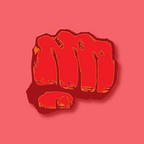Mothers
By John Bengan
1.
My son was five days short of his thirty-third birthday when he died. He was killed, shot in the head like some goat outside his home. I was in Cagayan de Oro when it happened, busy talking my sister through an annulment. And my daughter, for her panic and utter lack of tact, called me while I was snaking the car through noonday traffic, her squeaky voice trembling over the receiver.
Again and again I banged my head against the steering wheel like I had gone completely mad, dropping the phone on the carpet of my husband’s Land Cruiser. The whole thing felt like God yanked me off my seat with a hook. And I began to weep, soundlessly. I wept so long I thought it went on forever, some demon pulling a switch in my body and set free decades of anguish. The windshield began to fog with the heat of my breath and tears.
I didn’t go to where I was supposed to go that day; I had forgotten where I was going. I went to the nearest restaurant, craving for a hot bowl of shrimp soup. After the news of my son’s death, my body ached for nourishment. I first thought of going to a church, but changed my mind. I didn’t know what to say to God.
I arrived in Davao without sleep. I didn’t peer into my son’s coffin until another day. When I saw him finally, inside that box, I didn’t cry. Torment coiled in my chest like a serpent. On the broadsheets I learned that a motorcycle-riding gunman had done it. The police told me what they could. I had raised a criminal who smuggled cocaine from foreign lands.
On the fortieth night of his death I couldn’t sleep. When I walked to the window I saw the sky bleached, white as paper, as though it was daylight again. I searched for the moon, but it had drowned in the brightness of that evening.
Weeks passed and I flew to Canada, where no one really knows about my son. There I waited and waited for the skies to go black again.
2.
I was putting sauce on grilled pork and chicken entrails when I heard them scream.
A neighbor ran to me, so I dropped what I was doing. Your son! Your son! They were pointing to the horizon, looking at me like I had to run after someone. There! Now!
Children waiting for their barbecue watched me stand there, unable to move, the grill bursting with smoke. The look in my neighbors’ eyes, like they knew this day was going to come. I couldn’t lift my legs. I thought of flying.
Three heavy steps, and my legs gave up. They stood around me as I spun on the dirt, tearing at myself, whatever on me I could grab, hair, clothes, my skin. Right away they took him. They didn’t want me to see.
I remember being sent home, people pulling me up, carrying me. They said that was when the police came. I asked my two other sons to claim their brother’s body. A television crew followed them on the way back.
In my house these people asked about our life, about my son. They wouldn’t let me go until they get it right. So I told them about him, the son I lost, he was too young, my eldest who was a dreamer. But they wanted to hear about the drug runner. For days I couldn’t stand, my legs dead as wood. I rode a wheelchair to the funeral.
They showed me a photo of him days after, his body twisted on the pavement, a dark streak across the back of a shirt I recognized.
But the man on the photograph was not my son. A different man, someone I’d never seen in my life.
I’ve heard of another man killed outside his house. He owned the furniture shop where my son was a carpenter. Only yesterday they found the body of a little boy, thirteen years old, on the edge of the Bankerohan River. The boy, they said, worked for dealers around our place. That same day I was at the cemetery, cutting the grass around my son’s headstone.
— -
*Published in Very Short Stories for Harried Readers, Vol. 1, ed. Vicente Garcia Groyon (Quezon City: Milflores, Inc., December 2007)
